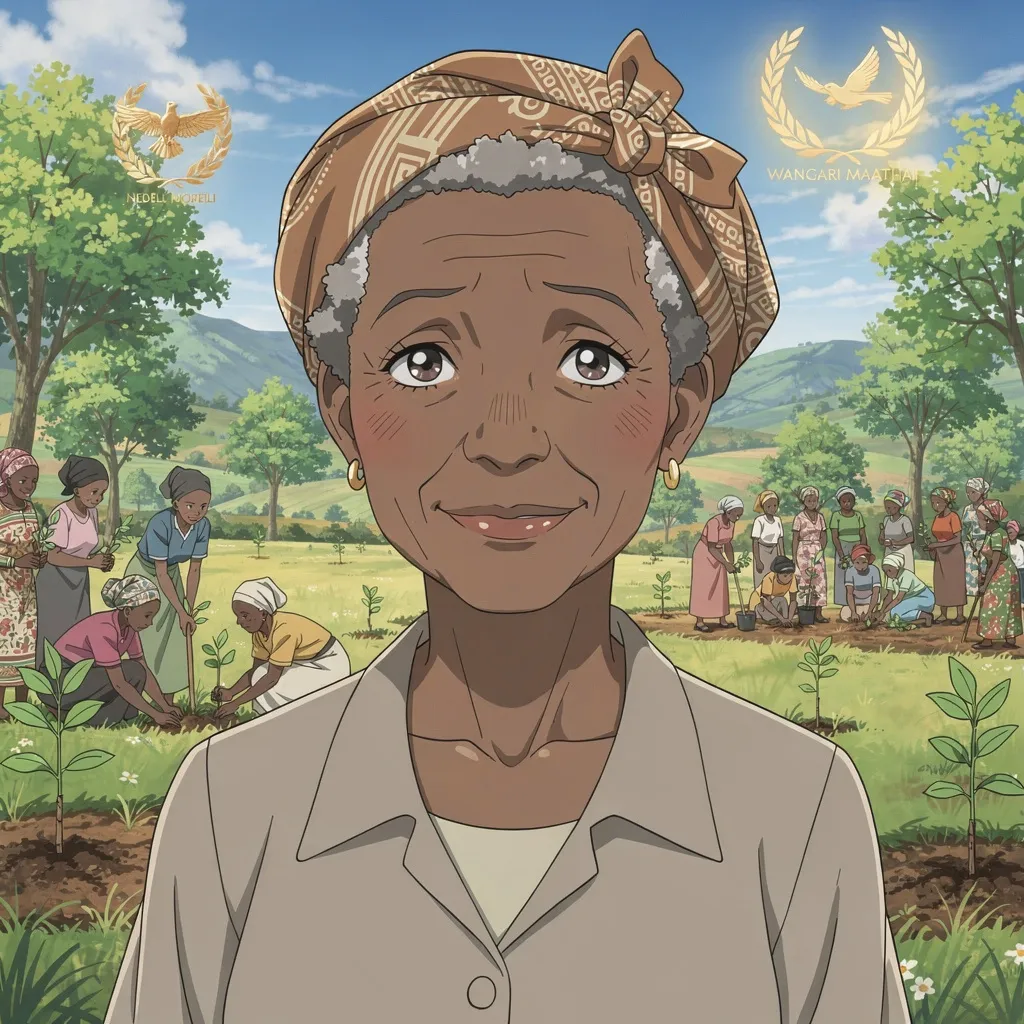
Wangari Maathai
1940-2011
Starting the Green Belt Movement and winning the Nobel Peace Prize for helping people and the planet
Early Life
Wangari Maathai was born in 1940 in a small village in Kenya, a country in Africa. She grew up close to nature, where she learned to love trees, rivers, and animals.
As a child, Wangari was curious and worked hard in school. Her family believed education was important, and they encouraged her to keep learning.
Learning and Big Dreams
Wangari became one of the first women from Kenya to study in the United States. She studied science and learned how plants and the environment work.
Later, she earned a PhD, which is the highest college degree. This was very rare for women in her country at that time, and it made her a strong role model.
Helping the Earth and People
When Wangari returned to Kenya, she noticed a problem. Many trees were being cut down, and people did not have clean water or enough food.
In 1977, she started the Green Belt Movement. The idea was simple and powerful: plant trees! Women in villages planted trees to help the land and earn money.
A Leader for Change
The Green Belt Movement helped millions of trees grow across Africa. It also helped families have better soil, clean water, and stronger communities.
Wangari taught people that caring for nature also helps people live better lives. She believed everyone, including kids, could help the planet.
A World Honor
In 2004, Wangari Maathai won the Nobel Peace Prize. She was the first African woman to receive this award.
The prize showed the world that protecting the environment can bring peace and hope. Wangari used her voice to inspire others to care for Earth.
Legacy
Wangari Maathai passed away in 2011, but her work continues. The Green Belt Movement is still active today.
She is remembered as a brave leader who showed that small actions, like planting a tree, can make a big difference.
🎉 Fun Facts
Wangari helped plant over 50 million trees across Africa.
She was the first woman in East Africa to earn a PhD.
Her favorite message was that even kids can help protect nature.
She believed trees were symbols of peace and hope.